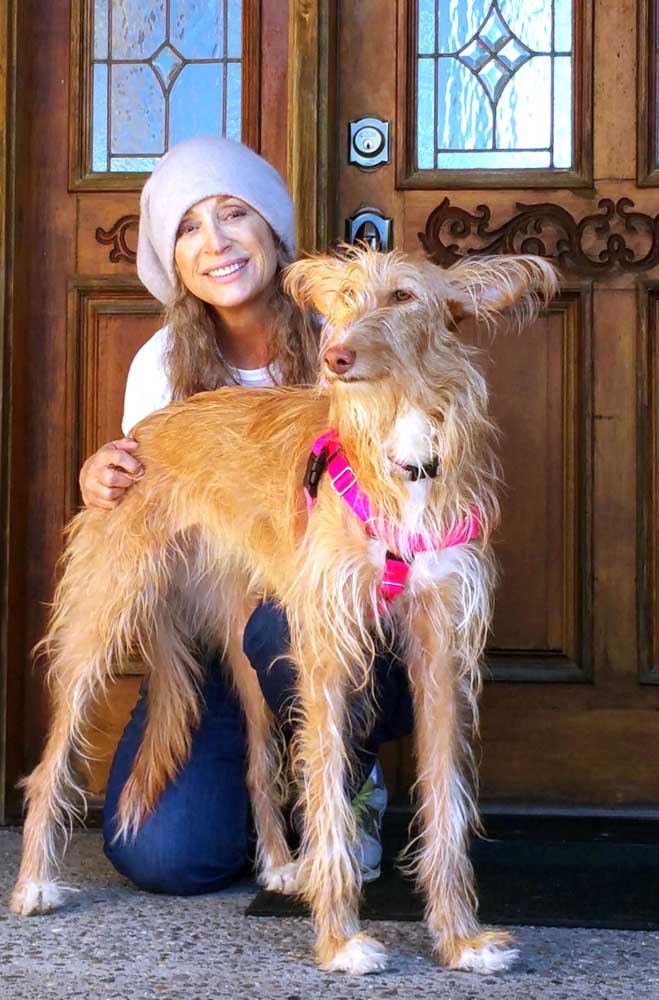Canine Corner: Certified or not certified, that is the question
Published 10:19 am Friday, June 28, 2019

- Rain Jordan of Expert Canine with Dahlia.
When I was 30, an acquaintance told me that in his native language, my name means “gullible” — to which I responded, “Seriously?”
It was funny then and still is now. But some gullibility has consequences. And sometimes, gullibility is farmed. That farming is often called “marketing.” I have no problem with marketing; small business owners like myself must rely on good marketing for our good work to become known. Notice I say good marketing — emphasis on good.
Trending
Most of us can agree that good marketing should not exploit the innocence of others, nor put others at risk, especially not by misleading them. Yet such exploitation occurs every day, and there seems no way to stop it. We can all, however, do a little to minimize its power over us by educating ourselves and then helping others understand. Today I hope to help you understand a little more about dog trainer marketing.
One thing that we dog trainers do is share videos. I won’t be talking at length about this today, but do want to mention that just because the results in a video look great, that does not mean how the results were achieved were great. In dog training, the process is just as important as the end result, and it should be a do not harm — emotional or physical — process.
Another thing many of us do is lead with our credentials. Credentials are very important because they tell the public how qualified a trainer is or is not. Yet this is where things can get very confusing for the public; after all, how are you supposed to know what each credential means, where it came from, whether it’s reputable? Given that dog training is an unregulated industry, absolutely anyone can call themselves a “master dog trainer” or a “dog behaviorist” even if they’ve never taken a single dog training or behavior class. There’s more bad news: Some of these folks then open dog trainer “schools” that “certify” new trainers after as little as week or two. The good news is that there are professional certifying organizations with ethics rules for professional, certified trainers.
The independent testing and certification organization for dog trainers and canine behavior consultants is the Certification Council for Professional Dog Trainers. The CCPDT sets the global standard for rigorous exams that demonstrate mastery in humane, science-based dog training. To become certified, a trainer / behavior consultant must first show documentation of several hundred hours working with clients and their dogs, then pass a strictly proctored, objective, several hundred question examination, must abide by the code of ethics, and must update her education every year. A professional dog trainer or canine behavior consultant is certified by the CCPDT if there is either a CBCC-KA, CPDT-KSA, or CPDT-KA associated with her name; check CCPDT.org to confirm your trainer’s credentials.
Then there are the most respected schools. Certified Dog Trainer Professionals are graduates of the top program of the Karen Pryor Academy for Animal Training and Behavior and hold the title KPA CTP (Certified Training Partner). CTCs (certificants in training and counseling) are graduates of the Academy for Dog Trainers. Trainers who graduated from KPA or ADT are generally considered the go-to professionals in the industry. (Still, always do your own investigation!) There are many other, newer training schools. Some of them are, and some are not, committed to humane — force-free, fear-free, pain-free — practices. Some may unfortunately provide a certificate but call it “certification” while others, having little direct involvement in the field of training professional dog trainers, provide merely permission to teach and/or test and title you and your dog. Beware of these marketed as trainer “certification.” “Certification” means a trainer’s mastery has been independently assessed, that the trainer has passed an exhaustive, objective exam to demonstrate mastery. A “certificate” is a piece of paper that says someone attended a class or met other cursory requirements.
Last but not least, there are CAABs and VBs: Certified Applied Animal Behaviorists and Veterinary Behaviorists. Only CAABs and VBs can honestly call themselves “behaviorists” since in the animal behavior industry, one must have a doctorate degree or equivalent in animal behavior to call oneself a “behaviorist” or be a veterinarian who completed additional courses and residency in animal behavior to earn the title veterinary behaviorist.
Please don’t hesitate to contact me if you need help deciphering qualifications or behavior! We’re all in this together for the dogs.
Rain Jordan, CBCC-KA, KPA CTP, is a certified canine behavior and training professional. Visit her at www.expertcanine.com.






